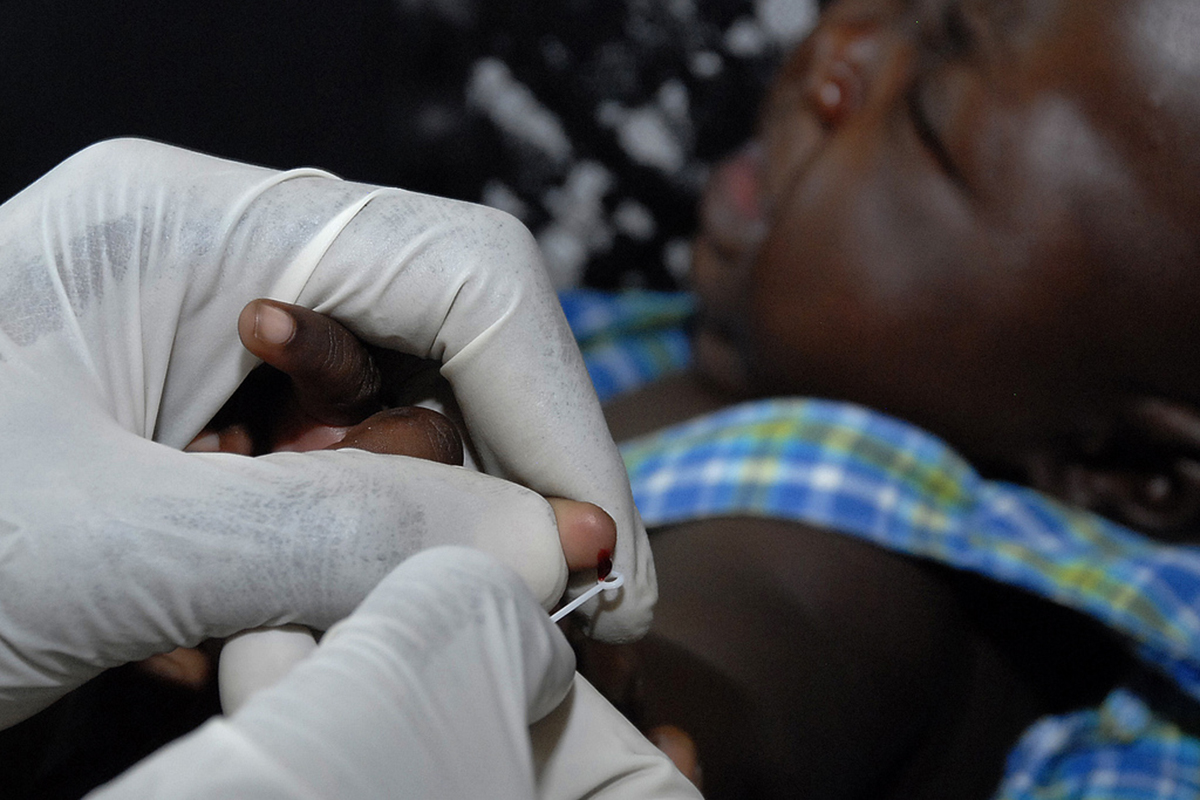Measles used to be a disease that nearly every kid got. Spread from child to child and from child to previously uninfected adults by contact with droplets of mucus or saliva, whole classes of school children often got the disease. I myself caught measles at a birthday party when I was five (before there were vaccines).
The next day all 30 children who were at the party had runny noses, fevers, cough, and worried mothers. Two or three days later, we all had the well-known red spots. At least two of the children developed pneumonia (one of them being me), a not uncommon complication of the infection, and one went temporarily blind. None of these children had been vaccinated, since at this time, the measles vaccine did not exist.

Measles was not and is not a benign disease. Before the rubeola vaccine was introduced in 1963, three to four million children a year caught the disease just in the United States. On average 48,000 American children had to be hospitalized, 4,000 developed permanent brain damage, and 400 to 500 died.
Do Measles Shots Really Work?
There's no doubt that measles vaccinations, given as part of the MMR (measles-mumps-rubella) shots required of most Amiercan public school children, stops measles. In 2000, the United States had no cases of measles at all. It is not necessary for absolutely every child to get the MMR vaccine to stop the spread of the disease. After all, you can't catch measles from someone who doesn't have it. As long as 93 to 95 percent of the population either has had measles (once you get them, you never get them again) or has had the immumization, the virus is not found in the general population. However, in recent years the problem has been that children visiting from countries where vaccination is not required have brought the virus with them, and spread it to local children whose parents have chosen not to have them immunized.
Is There Any Reason Not To Get The MMR Vaccine?
What Can You Do If You Just Don't Believe In Vaccination?

- The courts are not open to evidence that vaccines don't work, because for 95 years they have heard evidence that they do.
- Mandatory vaccination is constitutional. In the earliest years of the United States, in the times of the "founding fathers," people could be barred from entering towns unless they had had smallpox and or a smallpox vaccination, even if they lived there. This was a more draconian regulation than simply keeping a child out of school.
- The federal government (specifically, the Centers for Disease Control) defines which vaccinations should be offered, but the individual state boards of health implement the rules regarding which children should be given which vaccines and when.
- Forty-eight states allow home-schooled children to skip vaccinations. North Carolina and Oregon do not.
- For over 40 years, the courts have maintained that the states and the federal government do not have the right to limit the rights of believers who follow organized religions. This means, if you are a Christian Scientist, or Amish, or a member of certain small Protestant groups that do not believe in interfering with the "will of God," the federal courts, although not necessarily the state courts, will enforce your rights not be vaccinated. For this reason, legal battles over the new California laws are almost a sure thing.
- If your religious beliefs are more informal, for instance, you just believe it is "natural" not have your children immunized, some states will simply take you at your word. Others, like New York, will have you fill out statements to show the sincerity and consistency of your beliefs. However, if you are a member of an organized religion, then the state (at least in theory) cannot question the correctness of your beliefs even if your church does not have an explicit rule on vaccinations, as long as your beliefs are sincerely held. If you are, for instance, Catholic, and you believe that St. Anthony determines whether or not your children gets measles, whether or not the this is explicitly stated in the doctrines of the Catholic church, you are probably entitled to a religious exemption from vaccination. The First Amendment does not allow the federal government or the states to prefer one religious interpretation over another.
- Seeking a falsified medical exemption from an "anti-vax" doctor may be a crime. However, there is an often-overlooked approach, discussed below.
- Jain A, et al. Autism occureence by MMR vaccination status among US children with siblings with and without autism. JAMA. 2015 April 21. 313 (15), 334-40.
- Photo courtesy of US Army Africa via Flickr: www.flickr.com/photos/usarmyafrica/4553747600
- Photo courtesy of Daniel Paquet via Flickr: www.flickr.com/photos/danielpaquet/5116249876


Your thoughts on this